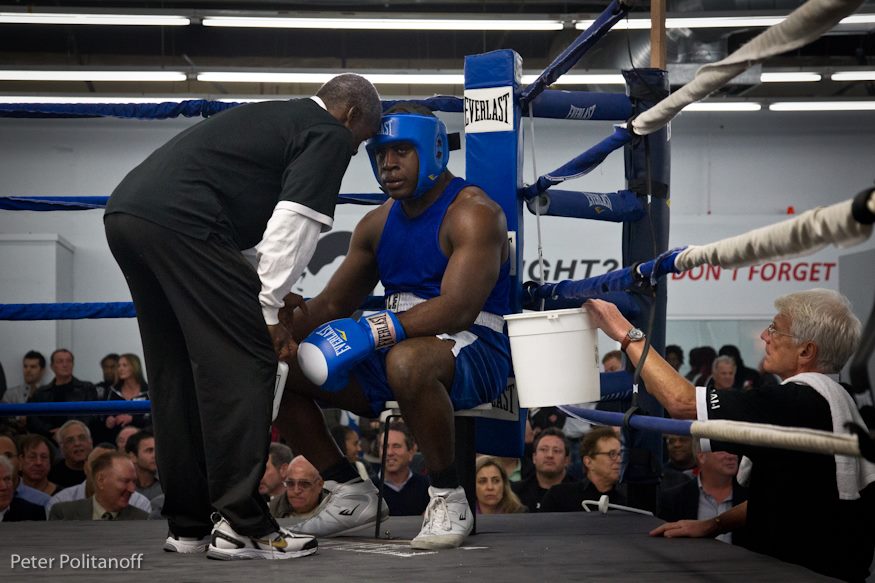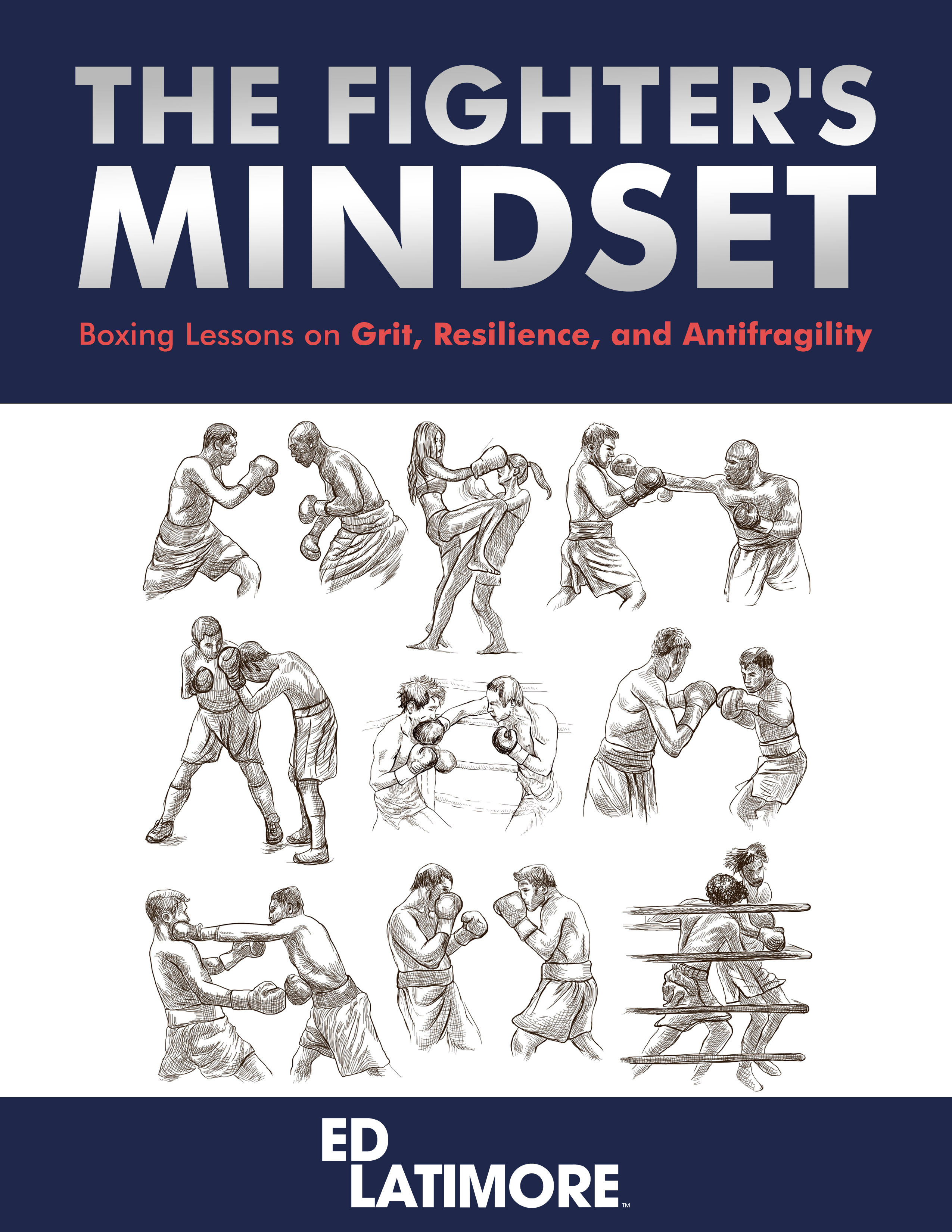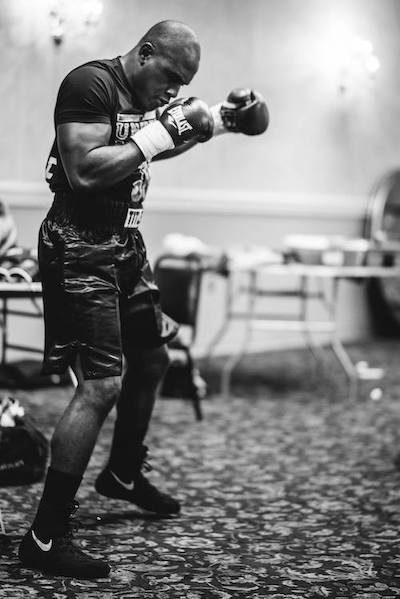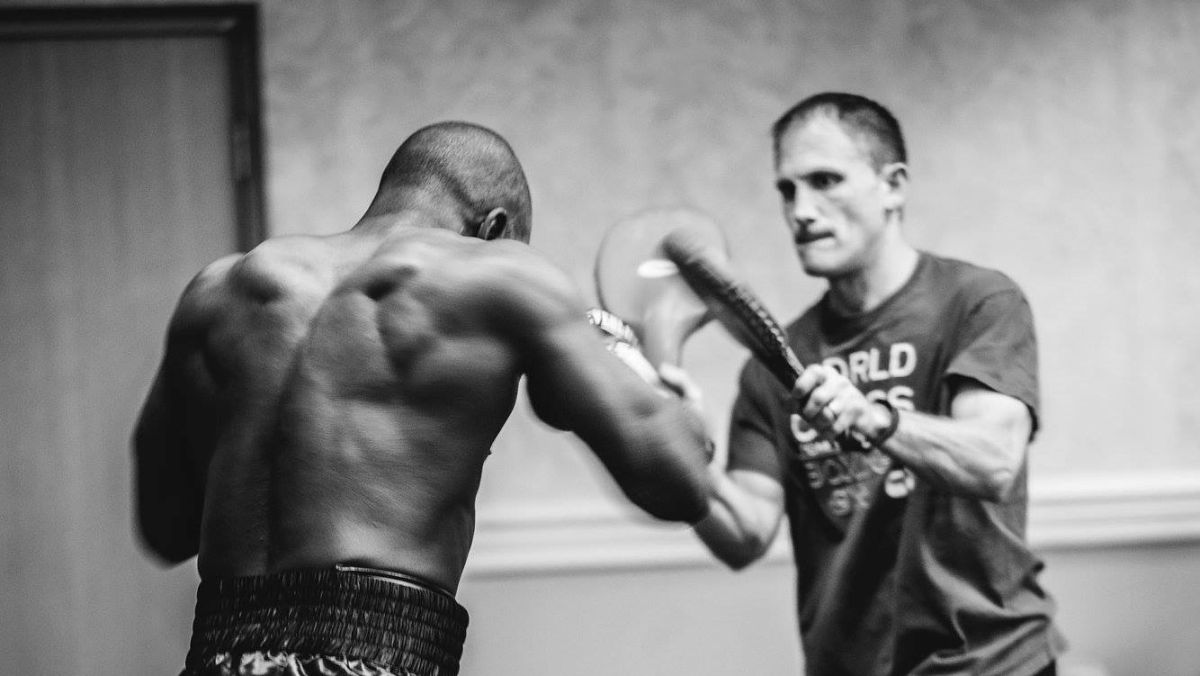Over the years, I’ve been asked about intuition and instinct. Which did I use during professional boxing matches? Or did I have both?
Here’s the difference between intuition and instinct:
Intuition is the result of knowledge and knowledge is the result of experience. Instinct is innate.
Instincts are the gut feelings that are often described as a sixth sense.
Intuition comes from experience making decisions, learning from your own experiences and those of others, and eventually developing a feel for the best way to approach new problems in a familiar domain. Better intuition leads to better decision making.
Two people can have the same instincts but not the same experience. Thus, their intuitive faculties are not equal. The one with intuition ALWAYS has the advantage.
I’ll explain.
In a physical confrontation, your fight or flight instinct is to react to an aggressor. Doing what comes naturally in that situation can get you hurt or worse. Internally, you instinct makes you feel like a bundle of nerves, but your experience gives you an intuitive response to the external stimulus.
Intuition tells you when and how to respond to a threat, which may mean simply walking away before the fight even begins.
Intuition is the more powerful of the two. It’s also more difficult to develop.
All human beings are born with base instincts. Trustworthy intuition can only be acquired through challenging firsthand experience. No book, course, lecture, theory, or tutorial in the world can give you the same foresight. Here’s why.
Intuition Is Trained, Not Taught

In the fighting context, the purpose of amateur boxing is to develop your fighting intuition.
They say the only preparation for boxing is to box. I don’t mean sparring for fun or practice. By fighting in real, bloody matches—win, lose, draw, or die—we learn how to box.
You can’t read a boxing book or watch a training video and expect to be able to defend yourself. Your instinct says that’s all the preparation you need to defend yourself. It’s dead wrong. “One-punch killers” exist for this very reason. That’s when someone gets into a scuffle and follows their gut instinct right to their death.
Intuition tells you to back off and deescalate; instinct tells you to push back and defend your pride.
My point is you only know what you’re doing once you’ve done it a lot. I’ve won thirteen of my fifteen professional boxing matches, but I’ve got hundreds of rounds as an amateur in the ring. Practice doesn’t make perfect, but it does make you intuitive.
This may seem obvious for athletic skills, but what about “soft” skills where progress is more difficult to measure?
Think developing a sense of humor, flirting, or even cooking. You can study these subjects until your eyes fall out, but you will be no closer to acquiring intuition. Intuition alone tells you when to hit the punchline for maximum effect, how to chat up the cutie without being creepy, and which ingredients to substitute mid-meal prep.
In any context, intuition means you’re able to do the right thing without prior extensive analysis. It’s not a mystical force or whisper inside your head telling you the answer to a problem. Rather, intuition is a strong urge in the direction of the correct solution way faster than you can reason through the problem.
Intuition knows what you need to do before you even know there’s a decision to be made.
To develop this ability, you first need extensive experience making decisions and seeing them through to their conclusion. This also means there will be times you are wrong.
Good judgment comes from experience. To get a lot of that requires bad judgement.
Boxing Lessons on Grit, Resilience, and Antifragility
In this e-book, I teach you 20 mindset lessons I learned from my 13-1-1 professional heavyweight boxing career.
Use these to conquer any challenges you face, in the ring or in life.
Learn how to develop the mindset of a fighter, from a fighter, so you can win the battles you face.

Improving Your Intuition (When Giving Up Is Easier)
The trick to improving your intuition is surviving those bad judgments.
Even that doesn’t go far enough. You must also survive the encounter with your will to succeed intact. This is easier to demonstrate with soft skills.
You want to be funny, but some jokes fall flat. You cannot let this diminish your confidence. Learn from the silence and move on. If you come off as socially awkward but want to be more outgoing, the first outings will be uncomfortable. Embarrassing mistakes will be made, but you must maintain your enthusiasm.
If you want to develop intuition within a sport, keep playing. If you have an injury, then you’re sidelined and can’t compete. If you have a bad game, maybe you get pulled from competition and can’t learn. In the military, if an officer’s troops have a poor showing on the battlefield, he and his comrades may not survive the lesson.
To me, boxing is somewhere between sport and war. Real-time fighting develops intuition, which improves performance during the next fight. An injury can sideline a boxer, but a loss of enthusiasm can make us hang up our gloves for good.
When loss of ego makes you lose enthusiasm for developing intuition
Back in my amateur boxing days, there was a kid who trained at the same gym I did. He showed promise, winning his first seven fights all a row by knockout. Then in his eighth fight, a nimbler opponent bested him.
Instead of using that experience to expand his intuition, he gave up. The kid quit boxing and never showed his face at the gym again.
This story sticks with me because it shows how effective the mind can be at shaping our fears and thus our future. Perhaps the kid would’ve amounted to nothing. Or he could’ve been a superstar. He’d already invested the time and energy into the training, but one bad experience—one bad case of judgement—ruined him entirely. It didn’t have to be that way.
Intuition is worth it no matter how painful it is to come by, literally or otherwise.
Intuition: The Great Force Multiplier

Superior intuition is one of three factors that determine who ascends to the top of any field. The other two are superior technique and superior ability.
“Technique” is the execution of the most efficient movement and ability is how effective said movement is. If the distinction isn’t clear, consider something a former NFL player once told me. He said that everyone is strong and fast (ability). At that level, the only differences are technique and football smarts (intuition).
Intuition is a key advantage is obvious in sports with weight class restrictions so everyone falls within a predetermined range. This limits how great the difference can be in opponents’ physical attributes.
A welterweight (147 pounds) needs to have superior intuition and technique because his ability is limited by how much muscle he puts on. If both fighters weigh the same and have great coaches, chances are they have similar ability and technique.
Intuition then is the differentiating factor.
All things considered equal (which they rarely are), it’s easiest to improve your ability. Next is technique. Last is intuition. It’s worth the time, effort, and suffering to improve because it’s a force multiplier for both ability and technique.
If you’re a boxer who already has devastating punching power and decent technique but don’t know where counter-punches are likely to come from, you won’t make it far. However, if you have average punching ability and sloppy technique but no one can ever hit you clean, you may become a world champion.
Every loss a fighter takes teaches him how to win the next one. Victory offers short-term gratification but no long-term improvement. However, the key is not just getting the experience but also doing the best you can trying many things before you lose. Each battle is an internship and eventually, your intuition builds to the point where thinking is no longer necessary for most decisions.
Intuition appears more valuable the deeper our study goes, but the process to acquire it is still a challenge. Intuition is simply a function of experience, and the only way to develop intuition is to gain more experience, but are there shortcuts?
Shortcuts to developing intuition
Yes. Let’s apply the 80/20 Rule, which says 80 percent of results come from 20 percent of efforts. Make more mistakes. Get messier than others do. Test yourself against more experienced opponents. Push yourself to the brink of your abilities.
This explains why speed is such a highly prized attribute not just in sports but in academic disciplines as well. You have a significant advantage if you can get to a place before your competitor or evade an attack directed at you. If you solve a problem faster than everyone, you are more valuable.
But before that, speed is positioning. This attribute is overlooked because it’s a product of intuition.
Who cares how fast the other guy can solve the problem if you simply know the answer without thinking? That’s the power of intuition.
It doesn’t matter how fast a punch is thrown if you’re always in the best position to neutralize and counter it. You’re much more likely to make the correct decision in less time with a greater reserve of energy to properly continue your plan. That’s intuition.
This applies to everything in life. If you want to improve your intuition, get more experience in the field you wish to improve. It requires sustained effort, an appetite for risk, and a desire to improve. Pass the tests and intuition is yours—it will serve you for the rest of your life.
And one day, intuition may save it.
Boxing Lessons on Grit, Resilience, and Antifragility
In this e-book, I teach you 20 mindset lessons I learned from my 13-1-1 professional heavyweight boxing career.
Use these to conquer any challenges you face, in the ring or in life.
Learn how to develop the mindset of a fighter, from a fighter, so you can win the battles you face.





